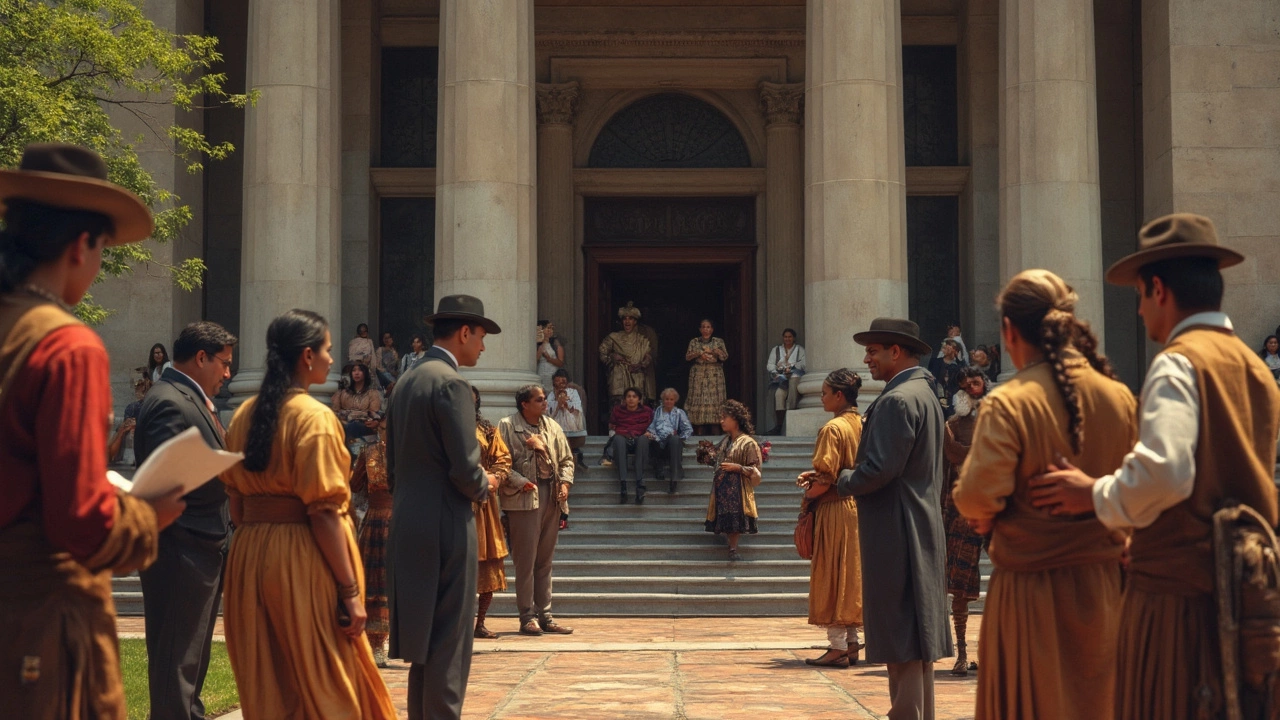General District Court: Basics, Jurisdiction & How to File a Case
If you’ve ever wondered where most civil and criminal matters start, the answer is usually the General District Court. It’s the first‑level court that hears a huge variety of cases, from property disputes to minor offenses. Understanding how it works can save you time, money, and a lot of stress.
In India, every district has at least one General District Court. The court is part of the state judiciary, sitting below the High Court and above the lower courts like the Munsif or Judicial Magistrate courts. Its main job is to resolve cases that are too big for a lower court but don’t need the High Court’s attention.
Jurisdiction and Types of Cases
The General District Court’s jurisdiction is defined by both subject matter and monetary limits. For civil cases, it can handle disputes involving property, contracts, family matters (like divorce or maintenance), and personal injury claims. The monetary cap varies by state, but it typically covers suits up to several crores.
On the criminal side, the court deals with offenses punishable with imprisonment of up to seven years. This includes theft, assault, dowry harassment, and many white‑collar crimes. If a case carries a higher penalty, it moves straight to the High Court.
One handy tip: before you file anything, check the local rules. Some districts have a separate “Family Court” for matrimonial issues, while others keep those matters in the General District Court.
Filing a Case: Step‑by‑Step Guide
Ready to start a case? Here’s a simple roadmap.
1. Draft the plaint or complaint. Write a clear statement of facts, the legal grounds, and the relief you’re seeking. Keep it factual and avoid emotional language.
2. Gather supporting documents. Attach deeds, contracts, photographs, medical reports, or any other evidence that backs your claim.
3. Pay the court fee. The fee depends on the nature and value of the case. You can pay at the court clerk’s office and get a receipt.
4. Submit the papers. Hand over your plaint, documents, and fee receipt to the court’s filing counter. The clerk will stamp your case and assign a court number.
5. Serve the opposite party. Once the court issues a summons, you must deliver it to the other side. You can do this yourself, or hire a professional process server.
6. Attend the first hearing. The judge may ask for clarification, set timelines, or push for a settlement. Be on time, dress neatly, and bring copies of all your papers.
If you’re unsure about any step, consider a brief consultation with a lawyer. Even a 30‑minute session can clear up confusion and prevent costly mistakes.
Many people also wonder about court abbreviations they’ll see on documents. For example, “IG” often stands for “Inspector General” in criminal cases. Knowing these shortcuts helps you read orders without getting lost.
Another common question is how courts decide on punitive damages. Judges look at the severity of the offense, the defendant’s conduct, and the need to deter similar acts. While you don’t control the judge’s mind, presenting clear evidence of malicious intent can sway the decision.
Lastly, remember that the court system encourages settlement. If both parties agree, you can avoid a long trial and save on legal fees. Mediation sessions are usually scheduled early on, so be open to negotiation.
In short, the General District Court is your starting point for most legal battles. Knowing its jurisdiction, filing requirements, and procedural quirks makes the process smoother. Keep these steps handy, stay organized, and you’ll navigate the court with confidence.

Where Are Civil Cases Heard in VA? Essential Guide to Virginia's Civil Courts
Trying to figure out where a civil case gets heard in Virginia? This article breaks down the court options based on what’s at stake—money, property, or more. Learn how the court locations, processes, and limits can affect your case. Get tips on paperwork, what to expect in the courtroom, and why choosing the right court makes a real difference. Here’s how to navigate Virginia’s civil court system without getting lost.